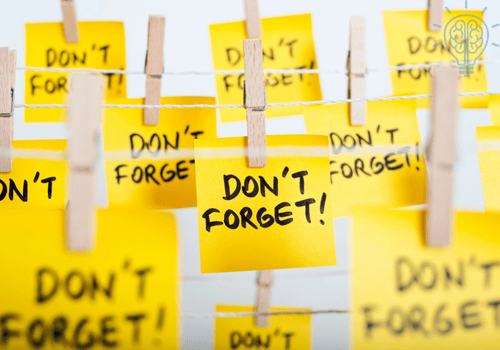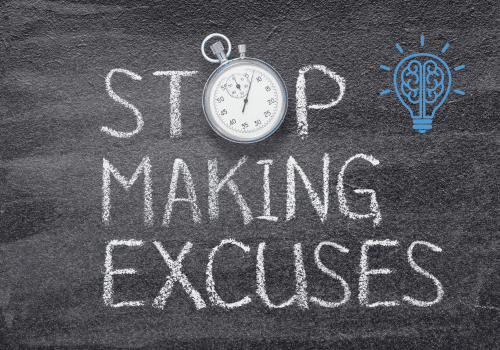“No matter how hard I work, I’m always behind. Why can’t I just stay on top of things?”
If this sounds familiar, you’re not alone. Many people feel like they’re constantly playing catch-up at work—rushing to meet deadlines, juggling unfinished tasks, and struggling to stay organized. It’s exhausting, stressful, and frustrating.
You might think the problem is poor time management or not working hard enough, but the real culprit often lies in executive function challenges—the brain-based skills that help with organization, planning, and task completion.
Before we dive into solutions, let’s explore why it always feels like you’re falling behind and how executive functions plays a key role in getting ahead.
Why You Always Feel Behind
Do you start the workday with the best intentions, only to end up scrambling to meet deadlines? Do urgent tasks keep pushing important ones aside, making you feel like you’re always in crisis mode?
If so, the issue isn’t just workload—it’s how your brain manages tasks, prioritization, and transitions. Struggles with executive function can lead to:
- 🚨 Last-minute scrambling to meet deadlines
- 📋 A growing to-do list that never seems to shrink
- ⏳ Getting stuck in unimportant tasks while big projects fall behind
- 🔄 Feeling overwhelmed and unsure where to start
The good news? Once you understand what’s causing this pattern, you can break free from it.
Reframing the Problem: It’s Not Just Poor Time Management
Instead of asking, “Why am I so bad at keeping up?” try asking:
- ✔️ Am I struggling to prioritize tasks effectively?
- ✔️ Do I underestimate how long things will take?
- ✔️ Is my environment full of distractions making it harder to stay on track?
By shifting your perspective, you can start to tackle the real issue.
The Executive Function Behind Staying on Track
1. Task Prioritization (Focusing on What Matters Most)
Many people fall behind at work because they’re stuck reacting to urgent tasks instead of focusing on what’s truly important.
📌 Why It Happens:
- Everything feels equally important, making it hard to prioritize.
- Reactive tasks (emails, last-minute requests) take up most of your day.
- The brain prefers quick wins over deep, meaningful work.
📌 How to Help:
- Use the Eisenhower Matrix—separate tasks into urgent vs. important.
- Start each day by identifying your top three priorities.
- Use time blocking to reserve dedicated time for deep work.
2. Time Estimation (Avoiding the “It Won’t Take That Long” Trap)
Underestimating how long tasks will take is a common reason people fall behind.
⏳ Why It Happens:
- The brain tends to underestimate complexity (known as the planning fallacy).
- Interruptions break focus, extending the time needed for each task.
- Open-ended work leads to endless tweaking instead of finishing (check out the Cult of Done!).
📌 How to Help:
- Use the “Double It” Rule—however long you think something will take, double it.
- Set **hard stop times** for tasks to avoid perfectionism.
- Use timers to track how long tasks actually take and adjust future planning.
3. Task Switching (Breaking the Cycle of Inefficiency)
Constantly jumping between tasks wastes mental energy and makes it harder to finish anything, and the less you complete, the more you’ll feel like you’re playing catch-up at work.
🔄 Why It Happens:
- New tasks feel more exciting, triggering a dopamine boost.
- You feel like multitasking is productive, even though it slows you down.
- Without structure, it’s easy to jump between incomplete projects.
📌 How to Help:
- Follow the “20-Minute Rule”—commit to one task for at least 20 minutes before switching.
- Batch similar tasks together—answer emails at set times instead of throughout the day.
- Write down intrusive thoughts instead of immediately switching tasks.
Practical Strategies to Get Ahead
✅ Time Blocking
- Use Pomodoro timers (25 minutes work, 5-minute break).
- Plan your day in “focus blocks” (e.g., deep work from 9-11 AM).
- Set a “shutdown ritual” to signal when work is done.
✅ Environment Optimization
- Declutter your workspace to minimize visual distractions.
- Use noise-canceling headphones or background sounds.
- Put your phone on airplane mode during focus sessions.
✅ Ending the Day with a Clear Plan
- Before finishing work, list the first task you’ll tackle tomorrow.
- Review what was completed and adjust priorities as needed.
- Use a notebook or app to capture any loose ends.
Coaching Can Help
If you’ve tried these strategies and still feel like you’re constantly playing catch-up at work, executive function coaching can help. We provide personalized tools to improve time management, prioritization, and focus.
📞 Want to learn more? Contact us today for a free discovery call—we’re here to help.




